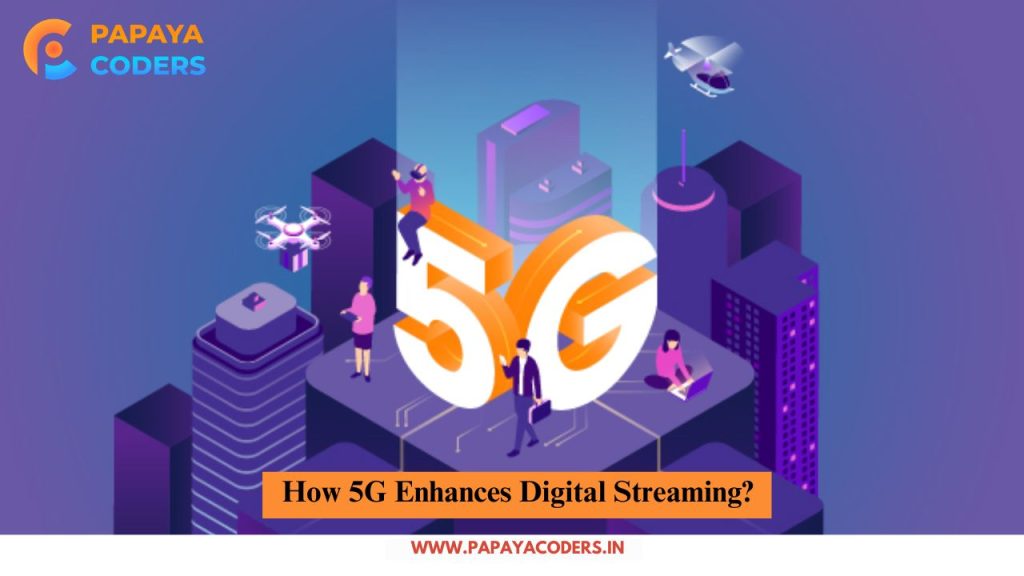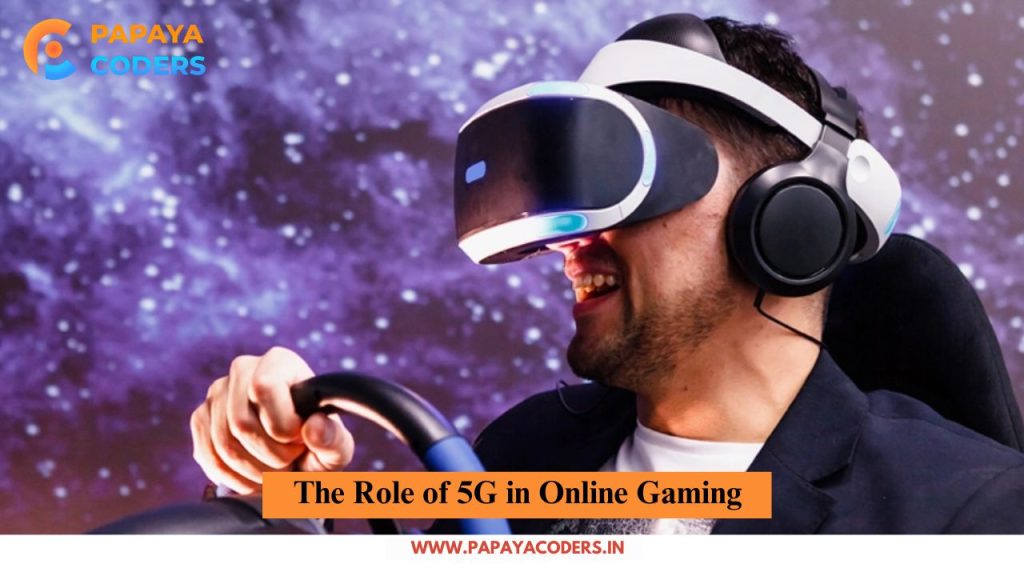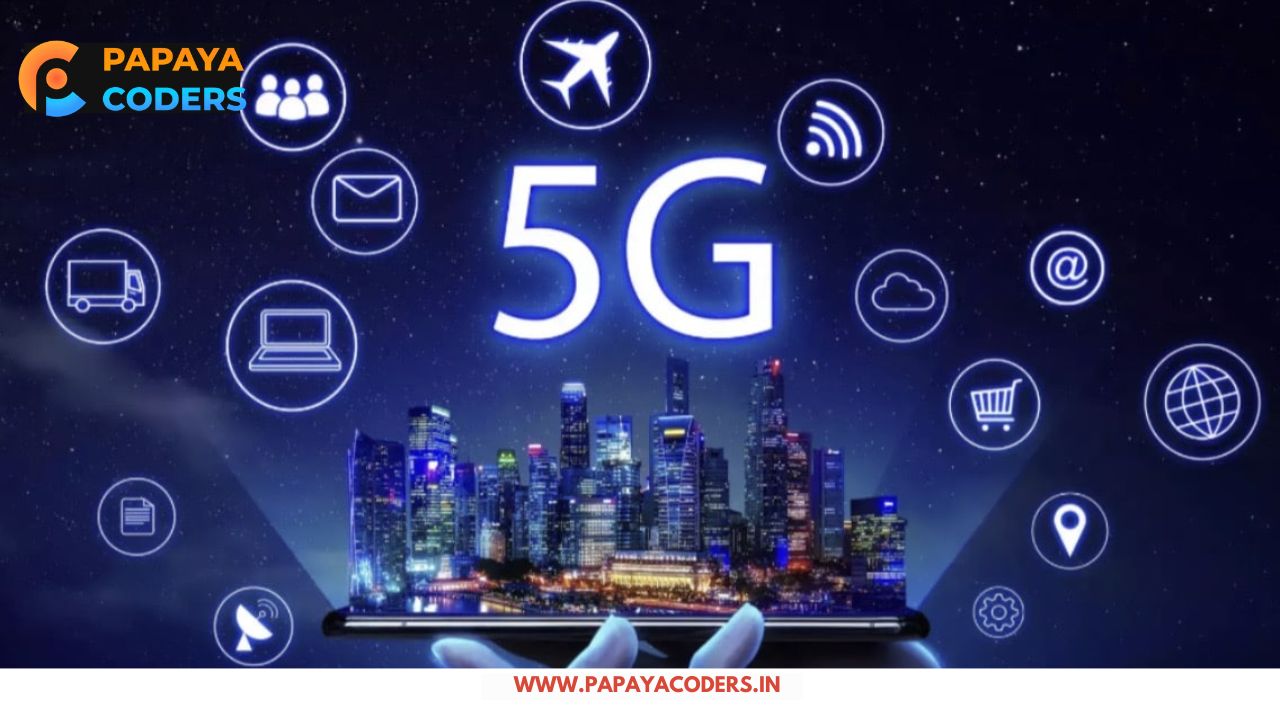Technology never ceases to surprise us. With every invention, a man’s interaction with content changes beyond recognition. Such is the case of the impact of 5G on digital streaming and online gaming, which is revolutionizing personal experiences with its on-demand content streaming and enhanced online gaming. Performance changes gain speed, lower latency, and better stability, making entertainment more immersive than ever before.
Buffering headaches, disruption, and delays have plagued end customers for years. However, with 5G support on various devices, there’s smoother and more efficient movement when working with many IT applications, including full-HD movies or even more advanced competition games.
How 5G Enhances Digital Streaming?
Streaming material depends a lot on having stable bandwidth. Any disruption causes delays, annoying users who anticipate continued smooth playback. With 5G technology, such worries are eliminated, enabling continued viewing without breaks.
This advancement in digital streaming and online gaming showcases the impact of 5G on digital streaming and online gaming, enhancing user experiences with faster speeds, lower latency, and better stability, making entertainment more immersive and enjoyable.

1. Higher Video Quality Without Buffering
Older networks struggled with high-resolution playback, often causing delays or forced downgrades in quality. The impact of 5G provides greater bandwidth, ensuring that 4K and 8K content plays without stuttering.
Benefits include:
- Faster load times for movies and shows.
- Smoother playback without mid-stream pauses.
- Support for higher resolutions across multiple devices.
2. Faster Downloads and Instant Access
Waiting to download videos can be frustrating, but 5G speeds up the process. Larger files take significantly less time, making offline access more convenient.
Instead of waiting minutes for content to load, you gain near-instant access. That change benefits casual viewers and professionals who rely on rapid media processing.
3. Reliable Streaming on the Go
Sometimes, mobile users have annoying connection problems, especially in crowded places. 5G can handle conflict if multiple people are online simultaneously and when too many or too heavy-duty applications are being accessed.
Public places such as stadiums, airports, and city centers generally have contention problems. If there were 5G, streaming would be like you had it exclusively for yourself in a low-populated terrain, which is helpful in high-traffic times.
The Role of 5G in Online Gaming
The impact of 5G Gaming requires precision, and every millisecond affects performance. 5G drastically improves games’ operation, making competitive play smoother and more responsive.

1. Lower Latency for Faster Reactions
Latency, or lag, directly impacts gameplay. When commands register slower than expected, frustration builds. 5G significantly reduces response times, ensuring your inputs translate instantly.
Lower latency means:
- Faster reactions in first-person shooters.
- Smoother controls in action-packed games.
- Fewer disconnections during intense sessions.
2. Cloud Gaming Becomes More Viable
Streaming games instead of downloading them has grown in popularity. Services like Xbox Cloud Gaming and NVIDIA GeForce Now depend on stable, high-speed connections. 5G ensures cloud-based titles run smoothly without lag spikes.
Instead of relying on expensive hardware, you access powerful gaming servers remotely. That shift lowers costs while improving accessibility across different devices.
3. Consistent Multiplayer Performance
Multiplayer games require reliable connectivity to maintain fair competition. Weak connections create delays, giving some players unfair advantages. 5G eliminates those inconsistencies, ensuring a level playing field.
With faster speeds and better stability, online matches run smoother, reducing frustration from sudden disconnections or lag-induced losses.
How 5G Changes User Expectations?
With higher speeds, your standards for digital services shift. Delays, buffering, and slow downloads become less tolerable when faster options exist. Streaming platforms and gaming companies must adapt to this new reality.

1. More Interactive Streaming Experiences
Beyond traditional videos, streaming now includes live broadcasts, virtual reality, and interactive content. 5G allows these experiences to reach new levels of realism, making engagement deeper and more immersive.
Viewers expect:
- Live streams with zero delays.
- Higher-quality VR experiences.
- Interactive elements with real-time responsiveness.
2. The Growth of Mobile Gaming
Mobile games have become more sophisticated, and 5G eliminates most of the previous constraints. Multiplayer games, vast open-world experiences, and cloud-based games run seamlessly without connectivity issues.
This progress allows developers to make more ambitious projects, as they know users will have the bandwidth to handle them.
3. Growing Augmented and Virtual Reality
The data transfer rate should be fast enough for a functional virtual reality (VR) and augmented reality (AR) system. In addition to 5G paving the way for quicker data inflow, it also helps achieve a nice outcome while rendering in real time.
Instead of being observers, the players become active participants and act in an environment without notable delays when not using VR technology. This change will be productive in various multi-user online projects, computer-assisted instruction, and general socialization via technology.
Final Thoughts:-
The iota of 5G has sped up connection and dramatically boosted applications like streaming, gaming, and interactive experiences. As the 5G networks expand, one anticipates one’s online experience to improve, particularly on the entertainment front, enabling rapid, smooth, and immersive experiences inverting the meaning of entertainment.
Read also:








